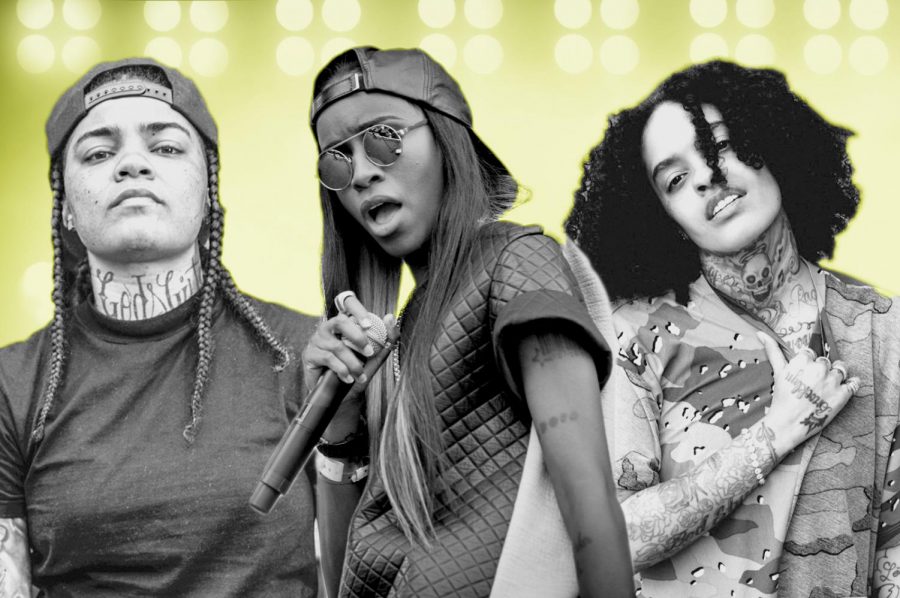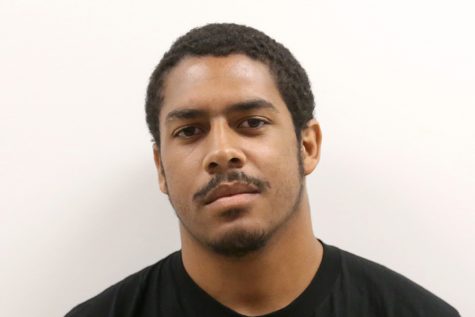Realness, sexuality warrant recognition
Male dominated industry forces female artists to counter sexist narrative
Mar 21, 2018
Hip-hop has given people from all walks of life a platform to tell their stories without a filter, as long as they have a mic and the willingness to be vulnerable. And women of color are no exception.
Rappers like MC Lyte, Queen Latifah and Lauryn Hill flexed their lyrical skills while giving a voice to black women in the genre.
However, hip-hop is still a male dominated art form that has struggled to foster an environment that gives women the opportunity to tell their unfiltered stories.
Often, women are forced to compromise their image and sound to push record sales and are not given due respect as artists compared to their male peers, regardless of lyrical skill.
But a generation inspired by legendary female emcees that preceded them is emerging.
The internet is empowering women of color like Young M.A, Angel Haze and Princess Nokia to seize the opportunity to create and sell their music independently and give a voice to women without any concern for the “male gaze.”
New York’s Young M.A blew up with the single “Ooouuu” and has a slew of impressive freestyles to her name. She’s an openly lesbian rapper who doesn’t shy away from speaking about her sexuality, nor is her appearance traditionally feminine.
The way her sexuality is represented becomes radical in how matter-of-fact it is.
What’s coming from her is not a straight music executive’s idea of what a lesbian is: a plaything whose sexuality merely exists to satiate men’s fantasies.
Her songs are packed with hedonistic bars about having sex that mirror lines found from her male peers. Young M.A’s music successfully fuses her sexuality with conventional masculine braggadocio to build a normalcy while other rappers attack what is normal to more aggressively challenge hip-hop.
In Angel Haze’s remix of Eminem’s “Cleaning out my Closet,” she goes into detail on her sexual abuse from 7 to 10 years old and how that experience scarred her mentally.
In a genre where male rappers contribute to rape culture in their lyrics, Angel Haze rapping about real-world consequences of rape from the standpoint of a female victim is a needed perspective.
The Detroit emcee is openly genderqueer and pansexual, going into her identity in her songs. Similar to how Young M.A’s sexuality manifests itself in her music, Haze’s sexuality is not commodified.
New York rapper Princess Nokia is an outspoken feminist that brings it to the forefront of her music giving an unapologetic look into her Afro Puerto Rican upbringing and womanhood. It’s not just her music, but her actions, that exemplify the current movement for women of color in the rap game.
In 2017, Princess Nokia delivered the smackdown to racist and sexist men. At a charity concert at Cambridge University she punched a guy in the audience who was harassing her during the show, yelling at her to show him her breasts. Later that year she threw soup in a man’s face for being racist on a New York subway train.
Princess Nokia literally fighting against racism and sexism mirrors women forcing their way into the hip-hop conscious despite facing continued sexism.
Hip-hop is a genre built on the foundation of a do-it-yourself attitude, which women of color have been putting into practice, without credit for decades.
Young M.A, Angel Haze and Princess Nokia each represent the intersections of race and gender women in rap today, but are far from the only ones.
Rapsody, Siya, Noname, Kamaiyah, Dej Loaf and dozens more are making their own lanes as women of color within hip-hop.



